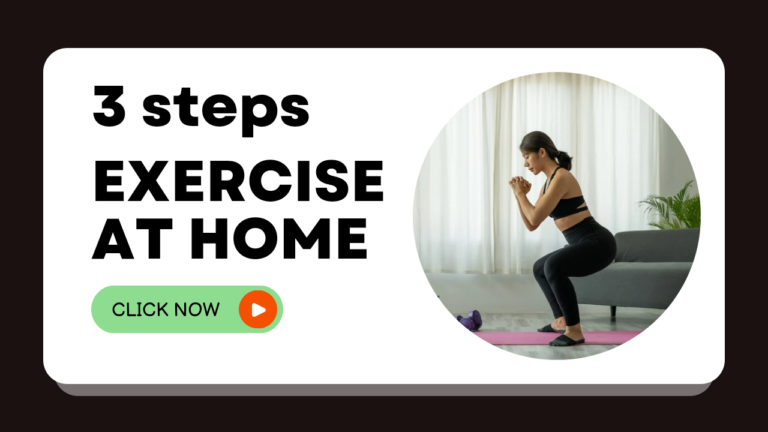
Introduction:
“Developing a stronger body and mind is a holistic endeavor that involves a combination of physical exercises and mental practices. These exercises are not only about building physical strength but also about cultivating mental resilience, focus, and overall well-being.
The mind-body connection is a powerful concept that underscores the importance of nurturing both our physical and mental health simultaneously. When we engage in exercises that challenge our bodies, we often find that our minds become sharper, more focused, and better equipped to handle stress and challenges.
This comprehensive guide introduces 12 exercises that target both the body and the mind. These exercises range from physical workouts that enhance strength and flexibility to mindfulness practices that promote mental clarity and emotional balance.
The Importance of Exercise for Health and Fitness
Exercise plays a pivotal role in maintaining overall health and fitness. Its importance extends far beyond just physical appearance and weight management. Engaging in regular physical activity offers a multitude of benefits that contribute to both physical and mental well-being.
- Physical Health Benefits:
- Heart Health: Regular exercise strengthens the heart, improves circulation, and reduces the risk of cardiovascular diseases by lowering blood pressure and cholesterol levels.
- Weight Management: Physical activity helps in burning calories, managing weight, and reducing body fat, contributing to a healthier body composition.
- Muscle Strength and Flexibility: Exercises such as strength training, yoga, or stretching routines help build muscle strength, enhance flexibility, and improve posture.
- Bone Health: Weight-bearing exercises like walking, running, and weightlifting can help build and maintain strong bones, reducing the risk of osteoporosis.
- Improved Immune Function: Regular exercise can boost the immune system, reducing the chances of getting colds, flu, and other illnesses.
- Mental Health Benefits:
- Stress Reduction: Physical activity triggers the release of endorphins, the body’s natural mood elevators, leading to reduced stress levels and a more positive outlook.
- Enhanced Cognitive Function: Exercise has been linked to improved cognitive function, including better memory, sharper focus, and increased mental clarity.
- Better Sleep: Regular physical activity promotes better sleep quality and can help alleviate sleep disorders like insomnia.
- Mood Regulation: Exercise can help combat anxiety and depression by promoting the release of neurotransmitters like serotonin and dopamine, which are associated with improved mood.
- Long-Term Health Benefits:
- Disease Prevention: Regular physical activity reduces the risk of chronic diseases such as type 2 diabetes, certain cancers, and stroke.
- Increased Longevity: Studies have shown that those who exercise regularly tend to live longer and have a higher quality of life as they age.
Incorporating a combination of aerobic exercises, strength training, flexibility work, and mindful practices into your routine can significantly impact your overall health and fitness. The key is consistency; even small amounts of regular exercise can yield substantial benefits over time. Prioritizing physical activity contributes not only to a stronger body but also to a healthier mind and a more fulfilling life.
The Mind-Body Connection: Mental Benefits of Exercise

The mind-body connection is a fundamental concept that highlights the interrelation between our physical health and mental well-being. Exercise serves as a powerful tool to strengthen this connection, offering numerous mental benefits that contribute to a healthier and more balanced mind.
- Stress Reduction: Physical activity acts as a natural stress reliever by reducing the production of stress hormones like cortisol and triggering the release of endorphins, which are neurotransmitters that elevate mood and promote relaxation.
- Improved Mood: Regular exercise has been linked to a reduction in symptoms of anxiety and depression. It stimulates the production of neurotransmitters like serotonin and dopamine, which play crucial roles in regulating mood and promoting feelings of happiness and well-being.
- Enhanced Cognitive Function: Exercise has a positive impact on cognitive abilities. It can improve memory, attention span, and overall cognitive function by increasing blood flow to the brain and promoting the growth of new brain cells and connections.
- Boosted Self-Esteem and Confidence: Engaging in physical activity and achieving fitness goals can boost self-esteem and confidence levels. Accomplishing milestones in workouts or sports can translate into increased self-worth and a more positive self-image.
- Better Sleep Patterns: Regular exercise can contribute to better sleep quality and duration. It helps regulate the sleep-wake cycle, allowing for deeper and more restorative sleep, which is essential for mental health.
- Stress Management and Resilience: Exercise acts as a form of stress inoculation. Through physical exertion, the body learns to handle stress more effectively, thereby increasing resilience and improving the ability to cope with life’s challenges.
- Mindfulness and Mental Clarity: Certain exercises, such as yoga and tai chi, emphasize mindfulness and focus on the present moment. They promote mental clarity, relaxation, and a sense of inner peace by combining movement with intentional breathing and meditation.
- Social Interaction and Emotional Support: Participating in group exercises or team sports provides opportunities for social interaction and emotional support, which can positively impact mental health by reducing feelings of isolation and fostering a sense of belonging.
Understanding the mental benefits of exercise underscores its importance beyond physical fitness. Incorporating regular physical activity into daily routines not only strengthens the body but also nurtures a healthier and more resilient mind, leading to an improved overall quality of life.
Incorporating Fitness into a Busy Lifestyle
In today’s fast-paced world, finding time for fitness amidst a busy lifestyle can be challenging. However, integrating physical activity into a packed schedule is possible with some strategic planning and dedication. Here are effective ways to incorporate fitness into a busy lifestyle:
- Prioritize Exercise: Treat exercise as an essential part of your routine, just like any other appointment or commitment. Schedule specific times for workouts and treat them as non-negotiable appointments.
- Short, High-Intensity Workouts: Incorporate high-intensity interval training (HIIT) or short, intense workouts into your schedule. These can be as short as 15-30 minutes but still provide significant benefits for cardiovascular health and fitness.
- Utilize Breaks: Use short breaks throughout your day for physical activity. Take a brisk walk, do some stretching or bodyweight exercises, or climb stairs during breaks at work to sneak in some movement.
- Morning Exercise Routine: Start your day with a workout. Waking up a bit earlier to exercise can energize you for the day and ensure you don’t skip workouts due to other obligations later in the day.
- Combine Activities: Incorporate exercise into daily activities. For instance, bike or walk to work if feasible, take the stairs instead of the elevator, or do squats or lunges while watching TV.
- Lunchtime Workouts: Use your lunch break for a quick workout session. Find a nearby gym or a quiet space for a workout routine that fits into your lunch hour.
- Weekend Fitness Commitments: Dedicate time on weekends for longer or more leisurely workouts. This can compensate for shorter sessions during the week and also provide a mental break from work.
- Accountability and Support: Find a workout buddy or join group fitness classes. Having someone to exercise with can make it more enjoyable and hold you accountable for sticking to your fitness routine.
- Home Workouts: Invest in some basic workout equipment or follow online exercise routines that you can do at home. This eliminates travel time to the gym and allows for flexibility in your schedule.
- Be Flexible and Adapt: Life can be unpredictable. If your schedule changes unexpectedly, be flexible and adapt your workout routine accordingly. Even a shorter workout is better than skipping it altogether.
Remember, consistency is key. Even if your workouts are shorter or less frequent due to a busy schedule, staying consistent with your exercise routine will still yield significant health benefits. Making fitness a priority and finding creative ways to incorporate it into your daily life can lead to improved health and well-being despite a busy lifestyle.
Conclusion
In conclusion, bodyweight squats are a simple yet highly effective exercise that can significantly contribute to improving lower body strength, stability, and overall fitness. This fundamental movement engages multiple muscle groups, including the quadriceps, hamstrings, glutes, and calves, making it a versatile addition to any workout routine.
The accessibility and convenience of bodyweight squats make them an excellent exercise for individuals of various fitness levels and backgrounds. Whether you’re a beginner looking to establish a foundation of strength or an experienced athlete aiming to enhance lower body power, bodyweight squats can be tailored to suit your needs.








